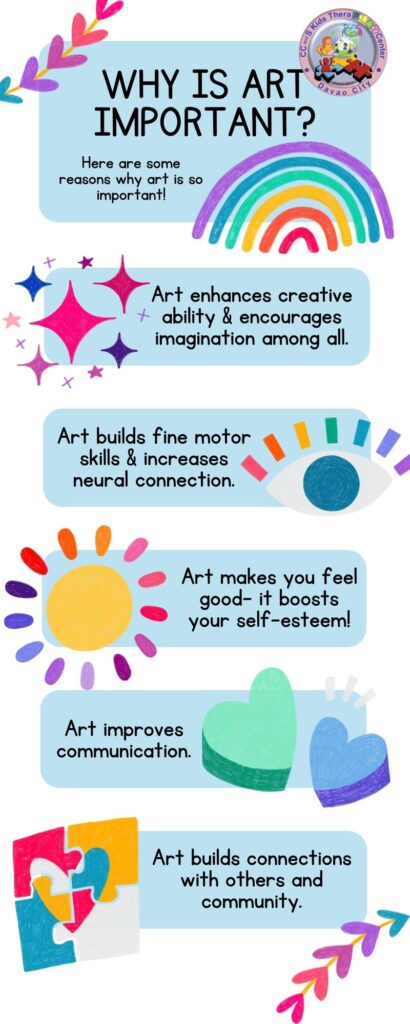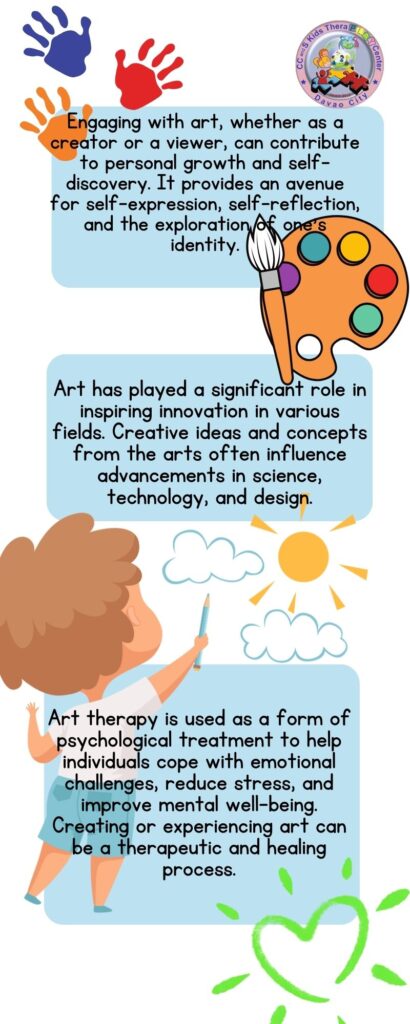Learning arts is crucial for special needs children as it provides a unique avenue for self-expression and communication, allowing them to convey thoughts and emotions in ways beyond verbal language. Art education promotes sensory exploration, helping special kids enhance their motor skills and coordination while fostering creativity and imagination. Additionally, engaging in artistic activities has been shown to boost self-esteem and confidence, offering a supportive platform for personal growth and social interaction among children with special needs.


Here are some reasons why play is important for children:
- Cognitive Development: Play helps children develop cognitive skills such as problem-solving, creativity, imagination, and critical thinking. Through play, children explore, experiment, and make sense of the world around them.
- Social Skills: Play provides opportunities for children to interact with others, developing important social skills like cooperation, communication, negotiation, and empathy. It also helps them understand social roles and rules.
- Physical Development: Different types of play, such as running, climbing, and jumping, contribute to the development of motor skills, coordination, and strength.
- Language Skills: Play often involves verbal communication, helping children develop language skills. It enhances vocabulary, speech, and communication abilities.
- Creativity: Play encourages imagination and creativity, allowing children to think outside the box and come up with innovative ideas.
- Problem-Solving Skills: Play situations often present challenges that require children to think critically and solve problems. This helps in the development of problem-solving and decision-making skills.
- Self-Regulation: Play provides opportunities for children to practice self-control and regulation of their behavior. They learn to take turns, follow rules, and manage their emotions.
- Stress Reduction: Play is a natural stress reliever for children. It allows them to release pent-up energy and emotions in a positive and constructive way.
- Bonding and Relationships: Play strengthens the bond between children and their peers, as well as between children and adults.
- Bonding and Relationships: Play strengthens the bond between children and their peers, as well as between children and adults.
In summary, play is not just a form of entertainment for children; it is a fundamental aspect of their growth and development, impacting cognitive, social, emotional, and physical domains.
